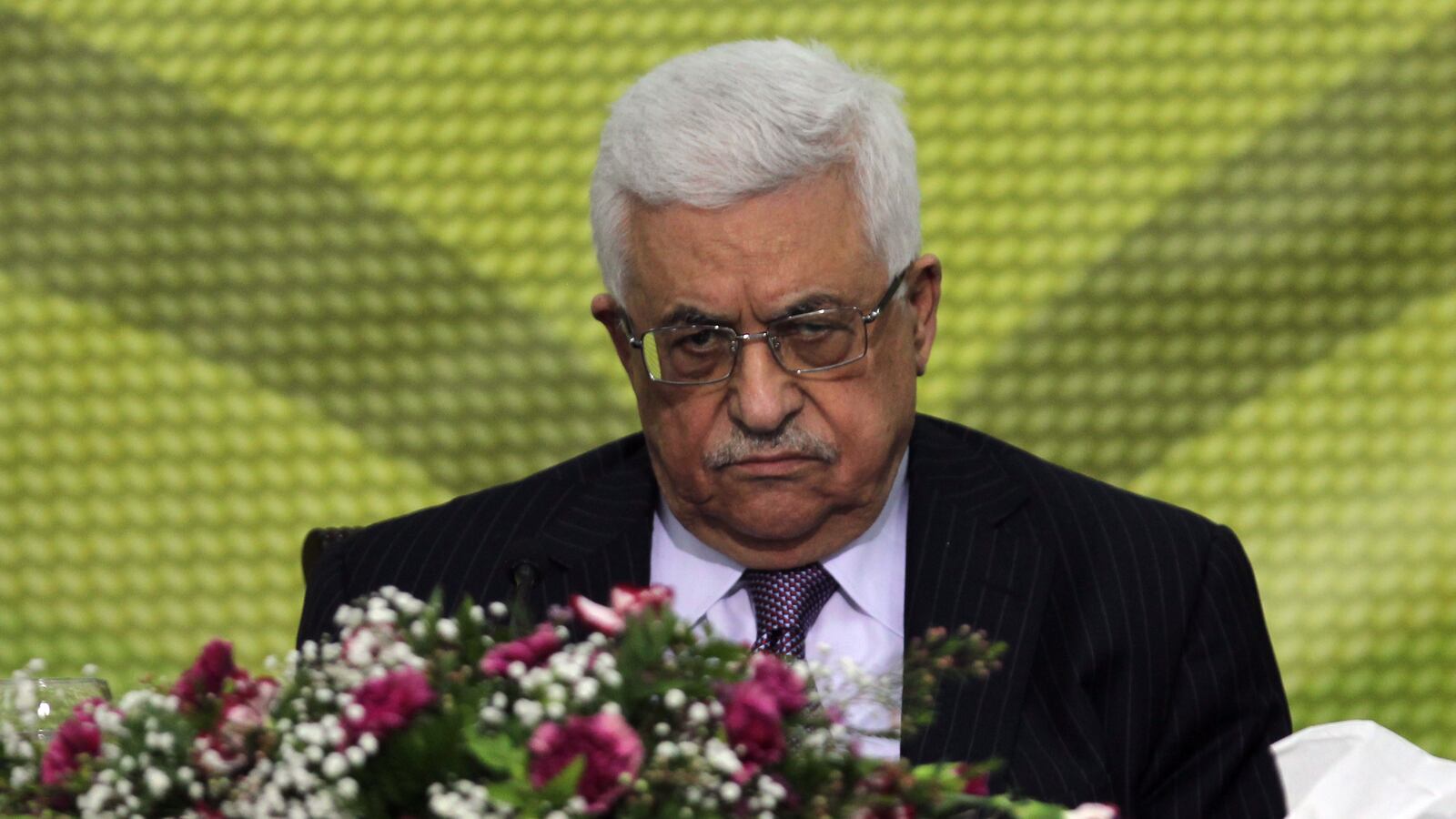Is the West Bank about to erupt into a dangerous unrest? According to the International Crisis Group, the answer is complicated. Ferment isn't imminent, but the conditions for it are ripe, said the group in a new report out this week.

Protests began to rise last fall over economic conditions in the occupied territory, and spiked again this year as Palestinians took to the streets over the treatment of hunger-striking Palestinians held in Israeli prisons. While many predicted a third intifada—a mass uprising—the protests eventually subsided. If more, society-wide protests emerge, they could not only raise tensions with the occupying Israeli forces, but also bring down the Palestinian Authority, the territory's limited self-government. Instability, in other words, remains a very real fear.
ICG identified the primary cause of the instability—as we have seen throughout the Arab Uprisings of the past two years—as the lack of the PA's legitimacy. "[T]he latest demonstrations are a symptom of a much longer-term trend of Palestinian frustration with the absence of a political horizon—with the seeming interminability of an occupation soon to enter its 46th year and the sense that they have been cheated by the Oslo framework that many initially believed would bring about statehood," said the report. That's why the efforts to address the specific causes of protests—propping up the PA with just enough cash to get through its fiscal crisis or dealing with prisoner issues—act as mere band-aids. The threat of a future mass uprising won't disappear until the larger issues plaguing the Palestinians do.
This time, for example, the crisis was averted, for the moment, but the conditions that led to the recent protests remain firmly in place, along with a host of other sparks-in-waiting for another outbreak of unrest. "In Israel/Palestine, events with potentially major consequences are frequent; with the system so brittle, virtually any substantial shock could have significant repercussions: Abbas’s departure and the attendant succession battle; intensified settler violence; large clashes on Jerusalem’s Holy Esplanade; the death of a hunger striking prisoner; or an act of spectacular political violence by either side that spins out of control," said the ICG report.
To make matters worse, the security situation in the West Bank is getting worse: clashes with Israeli forces are on the rise, and the Israelis have been arresting more and more Palestinian security officers. "These are signs not so much of a total breakdown or imminent collapse but rather of a slow deterioration in security resulting largely from the weakening of the cashstrapped PA as well as widespread frustration with the leadership and its lack of a political program," wrote the ICG. That, in turn, threatens security cooperation with the Israelis, again due to the crisis of legitimacy: Palestinians don't think the cooperation is in their national interests, but is just "helping Israel to preserve quiet for quiet’s sake. Each passing day that the status quo is preserved helps undermine the notion that the West Bank leadership’s peaceful political program will bear fruit."
So the worst of Palestinian unrest still lurks on the horizon, with grave implications for the PA and for Israel. But movement on the very issues at the core of the slow-burning sentiments seems exceedingly unlikely. As a Palestinian analyst told ICG, "Around the West Bank, the fires that have to be put out are increasing. For now the arsonists are still relatively few, and there are enough fire fighters to do the job. But at some point there are going to be too many fires at the same time to extinguish them all."






